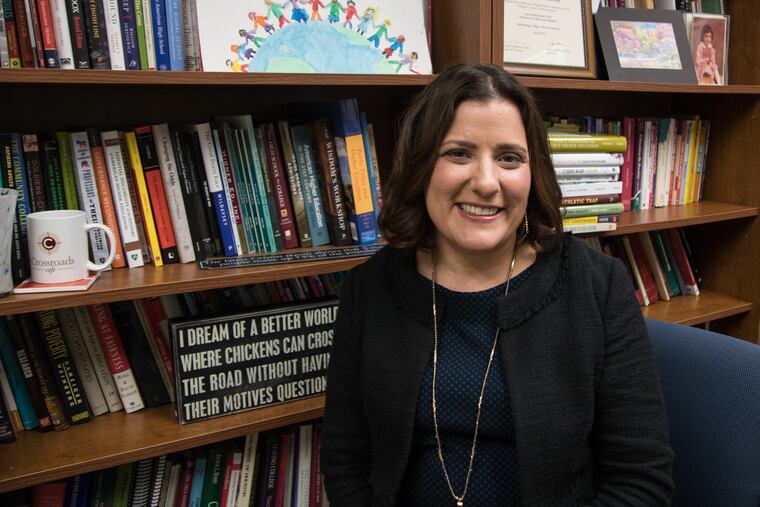Homeless and hungry college students will face greater challenges because of the coronavirus
More than half of survey respondents at two-year campuses in Philadelphia and one-third at four-year universities reported difficulty attaining enough food and secure housing. And that was before the coronoavirus.

A survey of Philadelphia college students found more than half at two-year campuses and one-third at four-year universities reported difficulty attaining adequate food and secure housing.
And that was before the coronavirus upended campus life, forcing many students out of their jobs and residences.
“It is therefore likely that rates of food and housing insecurity among Philadelphia college students have increased since they were assessed,” said the newly released report by the Temple University-based Hope Center for College, Community and Justice.
The pandemic “exposed the depth and breadth of vulnerability at Philadelphia colleges and universities, as many students who were forced to leave campuses had nowhere to go and no resources to create safe, alternative plans,” the report said.
And things are likely to get worse, given the millions who have lost jobs nationally, said Sara Goldrick-Rab, an education policy professor who leads the Hope Center. Students’ education could suffer as a result, she said.
“The biggest buffer they had against [homelessness and hunger] was their jobs,” she said. “The rates for the unemployed students are terrible. Active job search competes with your time for school and it doesn’t pay, and that’s a disaster for these students.”
The survey, funded by the Lenfest Foundation, was given to 73,000 students at Temple, Drexel and La Salle Universities, Community College of Philadelphia, and Orleans Technical College in fall 2019. About 8% or more than 5,600 responded.
Nonwhites, females and those who identify as LGBTQ generally had higher rates of housing and food insecurity and homelessness, the report said, as did those who had been in foster care, served in the military or had been incarcerated. About one in five respondents at two-year colleges indicated they were homeless and about one in 10 at universities, the report said.
“Changes to policy and practice are required to ensure these students continue to pursue their educational dreams," the report said. "We urge immediate investments in emergency aid, new partnerships between colleges and community organizations, and changes designed to better connect students with public benefits programs.”
» READ MORE: Colleges will receive millions in stimulus money, but coronavirus expenses are greater
The new report also highlights difficulties students face in affording transportation and child care. About a third of Temple respondents said they struggled to afford transportation to campus at least once in the previous year, the report said.
Homeless rates ranged from 11% of survey respondents at La Salle to 22% at Orleans. Food insecurity ranged from 32% at Drexel to 57% at Orleans, while housing insecurity ranged from 29% at La Salle to 55% at CCP.
Results, Goldrick-Rab said, point to the need for colleges to give students more help in applying for food stamps and other government programs that offer support.
“They really need to work with us,” she said of colleges, "because we can really help them do it.”
A citywide emergency aid fund for college students also should be created, she said.
» READ MORE: Temple prof: Philadelphia must do more to help hungry, homeless college students
The federal government is offering colleges about $14 billion in stimulus aid, about half of which is supposed to go to needy students. Goldrick-Rab initially was pleased with the federal guidelines, which seemed to give colleges a lot of leeway in distributing the aid. But since then, the government has said only students who qualify for other federal financial aid are eligible, cutting out international students, among others.
That will mean colleges have more students with unmet need, she said.
The Philadelphia Inquirer is one of more than 20 news organizations producing Broke in Philly, a collaborative reporting project on solutions to poverty and the city’s push toward economic justice. See all of our reporting at brokeinphilly.org.